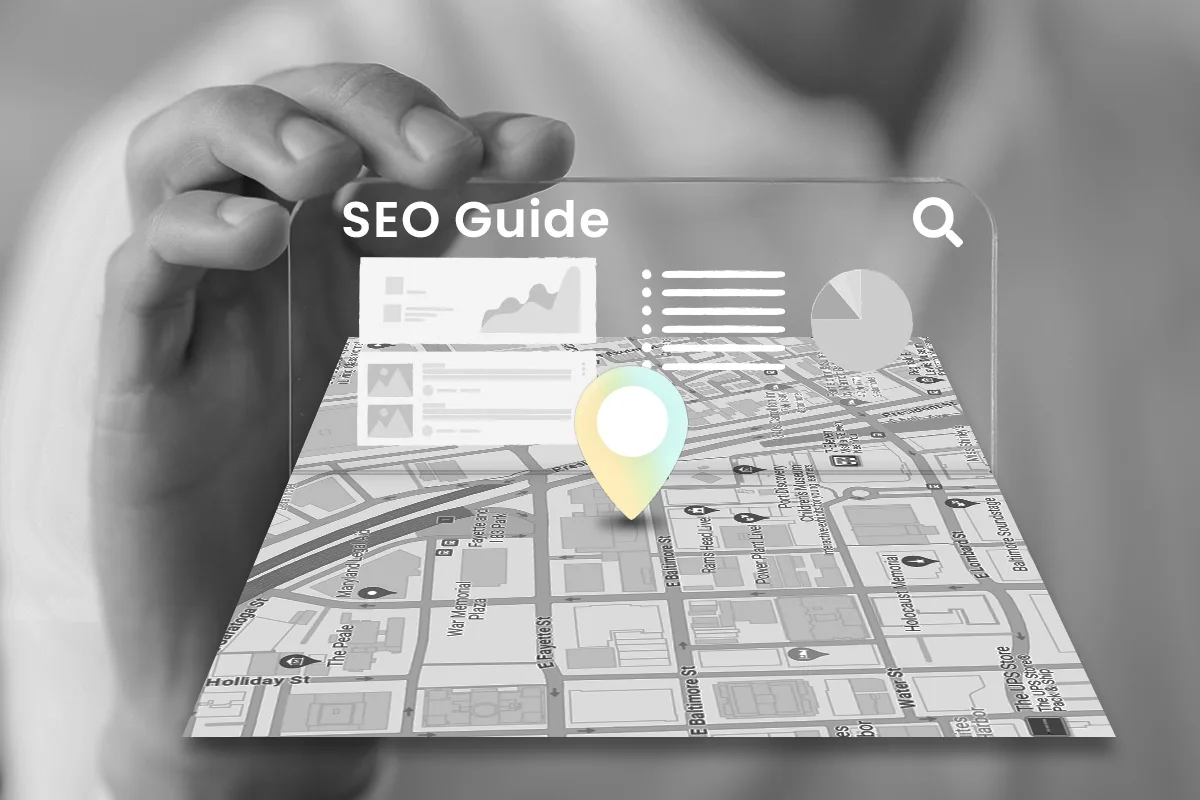SEO is the cornerstone of any digital marketing effort.
For good reason: effective websites have shifted to a lead generation model, and sites that drive traffic thanks to good SEO are the ones that succeed. Yet too often SEO is viewed like pizza: any SEO is good SEO. While this is partly true, it lacks some important nuance.
SEO drives all traffic indiscriminately, yet certain kinds of traffic are inherently more valuable. You want potential clients to find you, and your prospects are likely to live close by. Local SEO is a subcategory of SEO, focusing on winning the far more valuable local searches. To compete in the modern digital marketplace, a strong local SEO strategy is a necessity.
- Keyword Research
Keywords are a cornerstone of SEO, whether local or generalized. As with the keyword research you no doubt conducted for your firm’s site, you’re looking for the kinds of words and phrases people use when searching for legal representation. You already know how to use tools like Google Keyword Planner, and tricks like letting search engines suggest options.
With local SEO, you need another layer of research. You’re no longer looking for general searches, but searches in your area. Sometimes it is enough to add your location as part of your long-tail keywords, as well as the phrase “for me.” Local dialect and even language can also be a valuable resource.
You can find even more useful keywords with competitive keyword analysis. This is the process of researching the keywords your competitors are using, and then crafting content that beats them at their own game. When done correctly, it pays off twofold, giving you a new avenue of marketing and weakening your competition.
- Optimize On-Page Elements
It shouldn’t be news to you that your website is more than meets the eye. Many elements exist in its code, helping search engines understand what is on the page. Ensuring these elements are optimized is just one part of the SEO process.
These elements include things like title tags, meta descriptions, head tags, and even URLs. Use the keywords from step 1 and seed them throughout the on-page content. Be careful not to go overboard. If keywords get in the way of what is being shown, your SEO will suffer. Use them in a natural and conversational model, and they will speak to both human readers and search algorithms. Always consider your physical location in these elements and optimize accordingly.
- Claim and Optimize Your Google Business Profile
Google Business Profile, formerly known as Google My Business, is a powerful and free tool for local SEO. It’s also one that often falls through the cracks in favor of more obviously helpful elements, but GBPs combination of price (again, free), and reach mean it should not be ignored.
Ensure that all relevant information, including your firm’s name, your office’s address, phone number, business hours, and everything else, is accurate and up to date. You can add high quality images, select relevant categories, and provide a detailed description of your firm to further empower your GBP.
When claiming your GBP, be certain to use your business’s full and correct name. If you’re Harper & Collins Law Firm, that should be the name you claim your GBP under. This is not the place to spice up your description with superlatives like “best firm in Detroit” or “the number one personal injury attorney ten years running” even if these happen to be the truth. Your name is your name, and the superlatives can appear in quotes and reviews.
- Gather Positive Reviews
In the old days, the most common way for a law firm to generate business was via referrals. Referrals are still a powerful tool, but the way they are gathered and used has changed. Now online ratings and reviews have taken their place, with each one acting as kind of a generalized referral to the entire world.
Positive reviews play a significant role in local SEO and are excellent marketing tools besides. Encourage satisfied customers to post a review on GBP or any other reputable platform. Even the odd negative review can enhance your reputation, so long as you respond to all reviews in a respectful, professional manner.
- Create Localized Content
This is a place where law firms have it easier than other businesses. Because laws are not necessarily constant across state lines, and the concerns of your clientele are specific not only to your area but to your area of specialty, specialized content can take you a long way.
Create content that directly addresses the questions, concerns, and interests of your community and client base. Whether you choose to write blog posts, record videos or podcasts, or anything else, a library of content is a huge boost to SEO. Localized content will help you generate local traffic and local reviews, which acts as a snowball effect for your SEO. Don’t forget to regularly update your content as visitors prefer the new to the classic, as Google considers “freshness of content” as a factor in their algorithm.
- Build Local Citations
As you know, consistent information is an important part of SEO. Wherever your firm’s name, address, or other pertinent information appears in an online directory, it must be consistent and accurate. Everywhere it is inconsistent, your SEO takes a hit. This is known as NAP: Name, Address, and Phone Number, and it is a foundational step in building trust with search engines.
Such information is doubly important for your local SEO, as these are the people most likely to use it. Ensure your law firm is listed correctly on platforms like Yelp, Yellow Pages, and Avvo.
- Mobile Optimization
Most browsing online is done on mobile devices. As mobile devices become more user-friendly and internet connectivity improves in shared spaces, this trend should only grow more pronounced. This means that if your site isn’t optimized for mobile traffic, you’re already giving a poor user experience to half of your visitors.
Search engines know this and prioritize mobile-optimized websites in SERPs (Search Engine Results Pages). In simplest terms, if your site isn’t mobile-optimized, search engines will de-prioritize you, and on top of that, you will lose traffic as mobile browsers bounce for greener pastures.
- Utilize Local Schema Markup
Local Schema Markup is another kind of structured code that helps search engines understand what your website is and does. Unlike other forms of structured data, Local Schema Markup concentrates specifically on local businesses. Optimizing it means feeding directly into your local SEO.
Local Schema Markup provides search engines with the sorts of information that a customer looking to contact your firm would need, like your address, contact information, and your hours. Ensure these are updated and accurate the way you would with the same information on your Google Business Profile.
Local SEO is the most important SEO battle to win.
With a consistent approach to your content creation and concentration on the points above, your firm will be doing well in local searches. Most of the factors that work for more generalized SEO will do so for local, but often require an additional step to further optimize them for local. Remember, if your physical location can be used, use it and ensure it is accurate.
At Lead Science, we have over two decades of experience winning the SEO battle, and we’re on top of the importance of local SEO.
Schedule your Discovery Call with our team today, and let’s look at your current digital presence and talk about how our team can enhance it.







